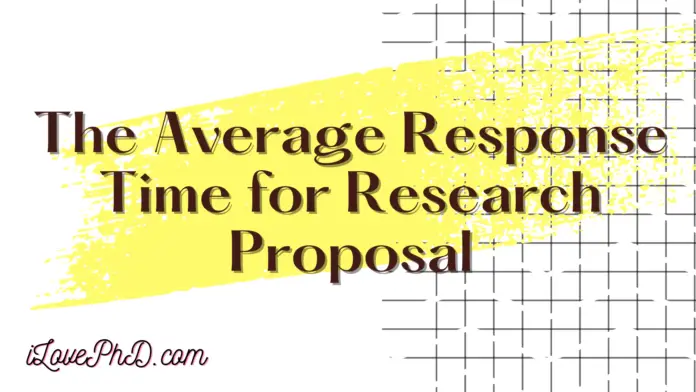In the fast-paced world of academic and scientific research, time is of the essence. Researchers often find themselves on tight schedules, with deadlines looming for research proposals. But just how long does it typically take to receive a response to this proposal? In this article, iLovePhD explains the average research proposal response time.
Average Response Time for Research Proposal
The Average Response Time
The average response time for a research proposal is less than two days. This may come as a pleasant surprise to many researchers who expect lengthy waiting periods.
However, it’s important to note that this figure can vary significantly based on the nature of the project.
Project Complexity Matters
The time it takes to write a research proposal depends largely on the complexity and scale of the project at hand. For instance, a proposal for a small grant, typically involving a straightforward research plan and budget, may only take a couple of days to complete. In such cases, researchers can expect relatively quick responses.
On the other hand, proposals for highly technical projects with intricate methodologies and substantial funding requirements may take considerably longer to craft. It’s not uncommon for such proposals to demand months of meticulous preparation before submission.
Response to Request for Proposal (RFP)
In addition to traditional research proposals, researchers may also need to respond to Requests for Proposals (RFPs) from various funding organizations. These RFPs often come with a set of questions and requirements that must be addressed comprehensively.
The average time to write a response to an RFP is approximately 32 hours. This figure takes into account the need to answer an average of 77 questions, with each question requiring about 25 minutes of thoughtful consideration. It’s worth noting that this is a substantial time investment.
Customized Responses and Win Rates
One interesting finding in the world of research proposal responses is that teams that invest more time in crafting customized answers tend to have higher win rates.
While this may seem counterintuitive to some, it highlights the importance of tailoring proposals to the specific needs and expectations of funding organizations.
Customized responses not only demonstrate a deep understanding of the project but also make a positive impression on reviewers.
It shows that the researchers are dedicated and willing to go the extra mile to secure the necessary resources for their work.
Summary
The average response time for a research proposal is generally less than two days, but it can vary significantly based on project complexity. Responding to RFPs is a time-intensive process, but the effort put into crafting customized responses often pays off with higher win rates.
In the world of academic and scientific research, where time is precious, understanding these dynamics can make a significant difference in the success of your proposals. All the Best!
Indexed Journal – Your Journal Search Ends Here
Check Journals List -> Indexed Journal
Search Scopus Journals-> Scopus Finder

